Study programme Hotel and Event Management
Learning by doing is key at Tio. Circa 60% of the Hotel and Event Management programme has a practical focus. To ensure our study programme is always up-to-date, relevant and interesting, we work together with a number of well-known industry organisations. These include IDEA, the industry association for the best event agencies, the national platform for B2B event professionals EventBranche, and HotelloTOP, the network for students and alumni of (international) hotel management schools in the Netherlands. Your future will be a success no matter what!
Bachelor's in 3 or 4 years | Associate degree in 2 years
Ambitious students have the opportunity to complete the bachelor's degree in just three years. You can also complete the bachelor's programme in four years. You can obtain the Associate degree in two years. If you start in January, it will take you six months longer to complete the programme, at no extra cost.
Curriculum
This study programme focuses on hotel management and event management. Management and entrepreneurship will play an important role as well.
You will also complete modules related to professional development and practice-oriented research . You will attend inspiring masterclasses, go on an international study trip and make many choices for yourself. You can take one or two minors or do an internship with a world-famous company.International experience
International experience is important, which is why you will complete at least one study component abroad. You can opt to do your (final) internship abroad or study at a partner university.Modules
Hotel management
The focus is on hotel practice, management and hospitality. You will learn how to prepare a nice dinner and immerse yourself in the world of facility management. You will also visit hotels like the Okura or the Marriott.- Food, knowledge & skills
- Beverage, knowledge & service skills
- Hospitality in practice
- Hospitality experience management
- Food & beverage support
- English
- Taste experience
- Hospitality leadership & management
- Language of choice
- Strategie hospitality management
Event management
You will learn all about organising events. During the Event Week project, you will compete in the event game, for which you will work with a team to come up with a concept for a company or charity. You will also get a behind-the-scenes look at events and companies.- Event project management
- lntroduction to event management
- Corporate events
- Public events
- Strategie events
Management and entrepreneurship
You will train your management skills, attend guest lectures and gain in-depth knowledge of hospitality, e-commerce and business plans. You'II learn everything you need to know to successfully run a business, hotel or event.- Finance & accounting basics
- Marketing
- Operations
- Digital marketing
- International strategic management
Professional and personal development
During your study programme, you will develop professionally and personally. For example, by working on your communication skills such as presenting, conversation techniques, storytelling and writing. You will also complete a module on intercultural communication and work on a personal development plan. As part of this, you will practise reflecting, giving feedback and learning to deal with stress, while also taking an in-depth look at time and project management.Practice-oriented research
Through practice-oriented research you develop an investigative approach through which you improve your professional skills. You learn how to give advice, make recommendations and design a plan or product. You will also learn how to devise solutions together with others for challenges that arise in practice. What are the exact requirements? What information do you need? And how do you collect that input in a good way?Projects and events
Practice-oriented learning is key at Tio. Learning by doing. Roll up your sleeves during the project weeks!
Tio brings professional practice to your study programme: from your first to your last academic year, you will work on projects with your fellow students and attend events.Kick-off
Let the year begin! The first event of your study programme is the kick-off. Here, you will meet fellow students from all Tio campuses and take part in inspiring masterclasses taught by well-known professionals.Hotel and Event Week
It might be the highlight of the first academic year: for one week, you and your fellow students will take over a real hotel. Which team can run its hotel best?Career Event
The best place to find an internship that’s right for you is definitely Tio’s annual Career Event. Here you will meet impressive speakers and choose from a wide range of leading companies. A great start to your career!Event Week
A week full of inspiration, real-life cases and pitches, in which you’ll play the role of event manager and come up with a creative concept for a real client.Hospitality business case
In the last academic year, you will spend eleven weeks working on a reallife business case. You will conduct research, think creatively and present your solutions or recommendations in the final project week. This is where everything you have learned comes together.International study trip and internship
Explore another country and immerse yourself in the local culture during the international study trip, then develop your hospitality talents during an internship in the Netherlands or abroad. You might work for Tomorrowland, Heineken or the InterContinental, to give a few examples.International opportunities
International experience looks great on your resume. Tio gives you many opportunities to go abroad during your studies.
All Tio students gain experience abroad. For example by doing an international internship, a graduation project, a study period abroad or an international study trip. The benefit of foreign experience? You learn to solve problems independently and take initiative. You also get to know other cultures and improve your language skills.
International study trip
You will go on an international study trip once or more times during your studies. Work, learn and discover a new city! Think of destinations like Bilbao, Rome, Prague, Dublin, Berlin or London.Study abroad
Study abroad for six months or a year at one of Tio's partner universities! With this, Tio offers its students an opportunity for self-development and to become well prepared for an international career. Naturally, a period abroad is also a valuable personal experience. Usually, you live on campus and study in an international class with different nationalities.If you are enrolled in the four-year bachelor programme, you can opt for the Grand international tour. You then exchange your second-year internship for an extra semester of studying abroad and you study for a year at two different Tio partner universities.
Excursions and activities
Every year, you can participate in various study trips and international excursions, both within and outside the study programme, and join in the activities of student association Cognatio. These include the winter sports trip and the introduction week in the Ardennes.Erasmus+ scholarship
The Erasmus+ grant is intended for students in higher education who want to study or do an internship in Europe. Whether a student can receive a grant depends on the grant amount made available to Tio. Your study coach can give you more information.Practical matters
If you are going to do an internship abroad or going to study abroad, your study coach will be happy to help you plan and prepare. Costs should also be considered as they are not included in the tuition fee. These include costs for a plane ticket, accommodation, household expenses and a visa (if you need one). If you receive Dutch student finance, you will be eligible for an allowance for the period your student travel product was inactive during your international internship and study abroad. You may also be eligible for an Erasmus+ grant.Internships and graduation project
Gain work experience, get a behind-the-scenes look at top companies and discover what really inspires you.
The best study programme naturally includes the very best internship experience. Your internship and graudation project are the real deal! This is where you put your knowledge into practice and take your first steps toward a successful career. The best way to develop skills such as communication, research and cooperation is through practice: by doing. Which we do! Many students consider their internship to be one of the most enjoyable and instructive parts of their study programme.
Choose an internship with a major Dutch company or a successful start-up or broaden your horizons with an internship abroad. You will complete two internships lasting 13 weeks each. This is your chance to immerse yourself in real-world practice!
International internship
A Tio internship lasts at least 13 weeks, but internships abroad may take longer. There is normally a minimum age of 18 years. One thing is certain: the experience is unforgettable! You can also graduate abroad. A great stepping stone to an international career.Large international network
From ID&T, G-star RAW, and fonQ, to Heineken, Disney, and BMW: Tio has a robust international network and solid connections with major (international) companies across various industries. Ask your lecturers if there are exciting internship opportunities within their network, propose your own internship company, and discuss your ideas with your personal study coach.Personal guidance
Your study coach is ready to support you with a listening ear and valuable tips. Additionally, you attend internship classes and can always consult with your lecturers. Once you've started, your study coach visits you in your internship location, even if you're working abroad.Minors
In addition to the major, in which you follow the courses of the curriculum, you choose one or two minors to broaden your knowledge. Which minor suits you best?
You may choose the minors that you relate to most. Once you have chosen a study programme, you will receive more information about the minors you can choose during your studies.Entrepreneurship
In the Entrepreneurship minor, the focus is on the changes in business practices that a company needs during its various life stages. Using the business lifecycle as a framework, the stages of a company's development are explored—from a start-up or spin-off, through the scale-up (growth) phase, to maturity and potential decline. It is the entrepreneur's responsibility to recognise these different stages and take steps to avoid the final phase, decline. This involves examining the entrepreneurial ecosystem, the business climate, and the role the company plays in both national and international contexts. Additionally, what is expected from the entrepreneur in these different stages of the company's life cycle is also considered.
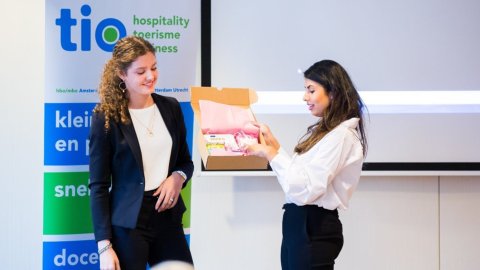 Minor Entrepreneurship @ Tio University
Minor Entrepreneurship @ Tio UniversityProject Management
In this minor, you will focus on the successful organisation of a project. You will learn how to select the appropriate methodology for a project or combine various methodologies. Additionally, you will work on topics such as risk management, team communication, and project evaluation, ensuring you always adopt the right approach for your project. You will develop the knowledge and skills to set up projects successfully and optimise the effectiveness of the project team. This includes exploring different methodologies and combining elements to create the best approach for each project.
Event Management
How do you organise an event? And how can you successfully use this event to promote a brand or company? In this minor, you will learn how to strategically leverage events to promote a brand or business.
Dive into the world of events with this in-depth minor, Event Innovator: The Future of Event Experience. This minor consists of four modules and is specifically designed for forward-thinking students aiming to transform the events industry. With a focus on innovation, sustainability, and technology, we provide you with the tools to shape the events of tomorrow, today. You will not only gain insights into the essential aspects of event management, but also be challenged to push traditional boundaries and shape the future of events. This minor is your chance to become an expert in creating meaningful, innovative, and sustainable event experiences.
Real estate
In this minor, we focus on the organisational, financial, technical, commercial, and legal aspects of real estate management. You will work on creating plans for managing real estate, exploring different management structures, and evaluating these plans and structures for feasibility, profitability, and risk. You will also explore the opportunities big data and AI offer and how they can be applied when considering the differences between regions and countries. Is there an ideal approach, or does each property require its own unique management structure? And how do you ensure that you remain in control?
Grand international tour
Instead of a second internship, you will study abroad for two semesters at one or two of Tio’s partner universities.
Only available as part of the four-year programme.Research
Are you considering pursuing a master’s degree after completing your bachelor's degree, or are you interested in researching a topic in a valid and reliable way? Do you want to improve your academic writing skills and also learn to think critically, logically, and creatively? Then this minor might be of interest to you.
In this minor, you’ll sharpen your research skills, dive deeper into statistics, and learn how to write academically.
During the Research minor, you’ll take courses such as academic writing and research skills. You will also deepen your understanding of various statistical analyses and learn more about conceptualising qualitative research. These skills will be highly useful when you are writing your final thesis and are often necessary to pursue a master’s degree.
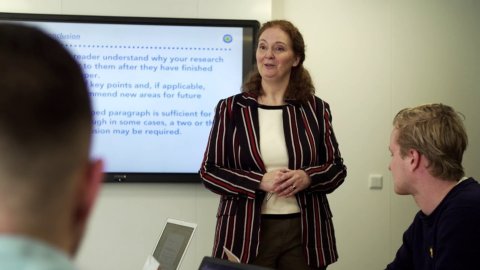 Research Minor @ Tio University
Research Minor @ Tio UniversityHospitality Management
Hospitality of the Future
The future is now! Trends and developments in the hospitality industry are evolving rapidly.What does the hospitality of the future look like?
How do we incorporate sustainability in the design of hotel rooms? What ingredients will be important in the beer of the future? How big (or small) will the rooms of the future be? How do you cater to VIPs from all over the world? What will the business model of the future look like? And how do you combine technology with guest-centric service?Sales
The goal of this minor is to work with other students to develop a (strategic) sales plan. Some aspects of this plan will also be implemented in practice, such as applying sales techniques, so you can actually learn how to sell a product or service. You will also learn how to work with a customer relationship management (CRM) system, write a social sales plan, and explore co-creation within a B2B (business-to-business) environment.
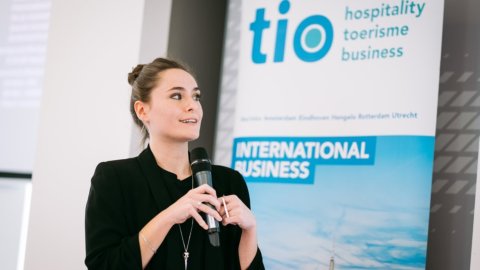 Sales minor at Tio
Sales minor at TioInternship minor
If you want to acquire even more practical experience, increase your knowledge of the sector and give your CV a boost, you can complete an internship at an organisation of your choosing.
Study abroad
Enrich your language skills and international contacts by studying one semester at a partner university abroad.
The semesters of some universities do not align with Tio's. As a result, you may miss a few weeks of classes at Tio or incur one or several months of study delay. Spending two semesters at one of Tio's partner universities is only possible when you choose the four-year programme.International and Financial Business Management
Wall Street, stocks, AEX, hedge funds, trading, bonds, investing, Nasdaq, options, shares, IPOs, financial markets, futures, speculation, S&P 500... We hear these terms every day, but what do they actually mean, and how do the financial markets work?
In this minor, you will delve into the world of high finance. You will learn what financial markets are, why they exist, and how they are structured. You'll also explore the different financial products traded in these markets and how to trade them.
Additionally, you will receive a comprehensive introduction to export strategy and management. Questions like: How do you assess if your company is ready to enter a foreign market? How do you determine which export market is most attractive for your business? Will you embark on the export journey alone or with a partner? How do you select the best product for export? And how do you decide if your company needs to adapt its local policies on placement, product, pricing, and personnel to fit the export environment?
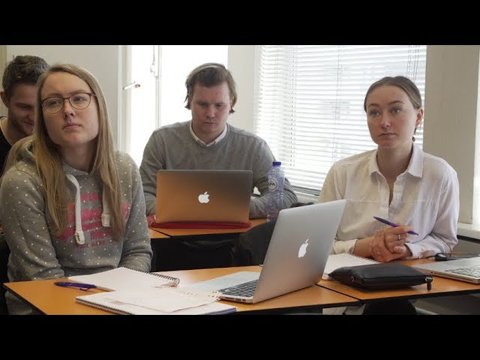 Minor Financial Management @ Tio
Minor Financial Management @ TioMinors Minors Entrepreneurship20Project Management20Event Management20Real estate20Grand international tour40Research20Hospitality Management20Sales20Internship minor20Study abroad20International and Financial Business Management20MinorsEntrepreneurship20Event Management20Grand international tour40Hospitality Management20Internship minor20International and Financial Business Management20MinorsProject Management20Real estate20Research20Sales20Study abroad20Which minor suits you best?
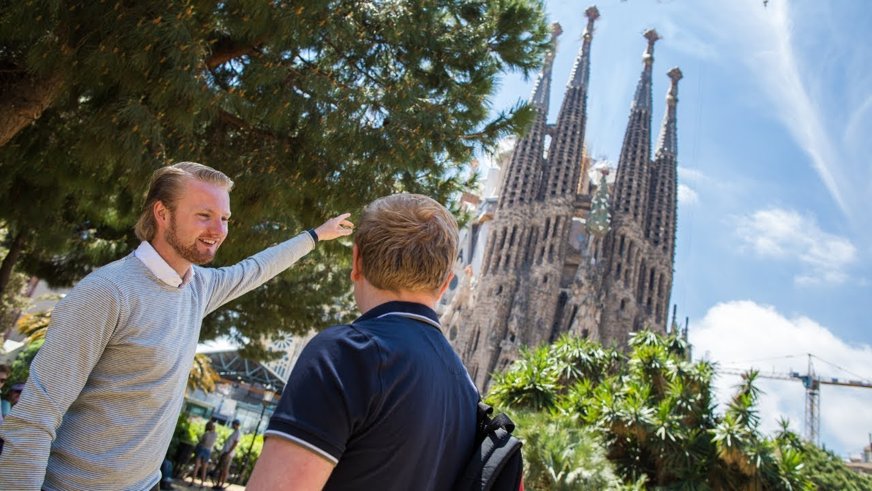 Which minor suits you best?
Which minor suits you best? Which minor suits you best?
Which minor suits you best?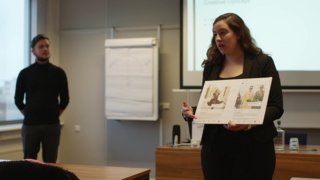 Minor Marketing Communication @ Tio University
Minor Marketing Communication @ Tio University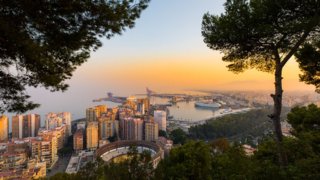 Reasons why you should experience a semester abroad
Reasons why you should experience a semester abroad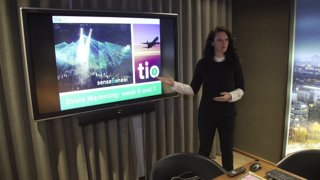 Event Management Minor @ Tio University
Event Management Minor @ Tio University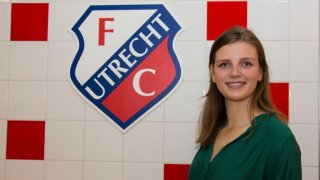 Practical Internship Minor @ Tio University
Practical Internship Minor @ Tio University Research Minor @ Tio University
Research Minor @ Tio University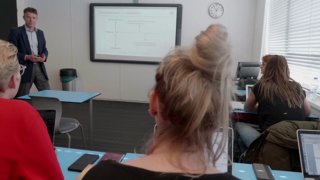 Minor International Business @ Tio University
Minor International Business @ Tio University Sales minor at Tio
Sales minor at Tio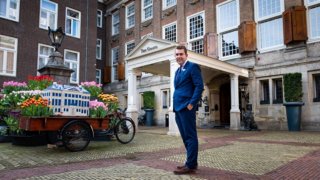 Management Internship @ The Grand Hotel Amsterdam
Management Internship @ The Grand Hotel Amsterdam Minor Entrepreneurship @ Tio University
Minor Entrepreneurship @ Tio University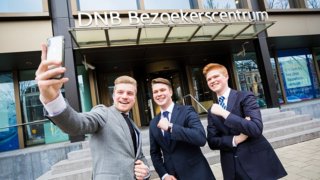 Minor Stocks & Bonds @ Tio
Minor Stocks & Bonds @ Tio Minor Financial Management @ Tio
Minor Financial Management @ Tio
What do you do at the bachelor programme Hotel and Event Management?
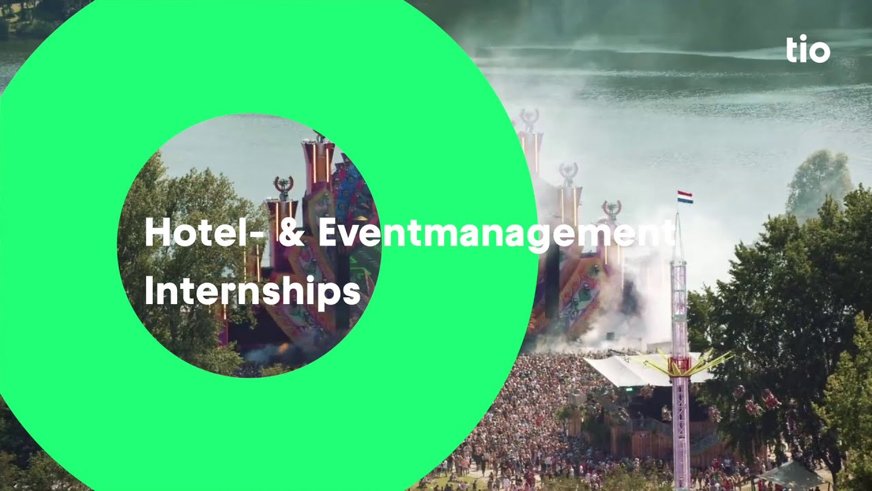
 Internships in Hotel and Event world
Internships in Hotel and Event world What projects does the Hotel and Event Management programme offer?
What projects does the Hotel and Event Management programme offer? Event management internship in the USA
Event management internship in the USA Working at the Ritz-Carlton Hotel in Hong Kong
Working at the Ritz-Carlton Hotel in Hong Kong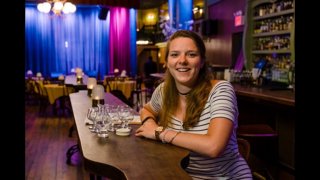 Event manager in New York
Event manager in New York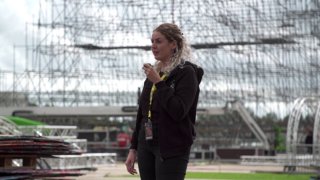 Internship at SOLID Event Crew
Internship at SOLID Event Crew What is it like to be a wedding planner in Spain?
What is it like to be a wedding planner in Spain? Do you want to work in Event Management?
Do you want to work in Event Management?